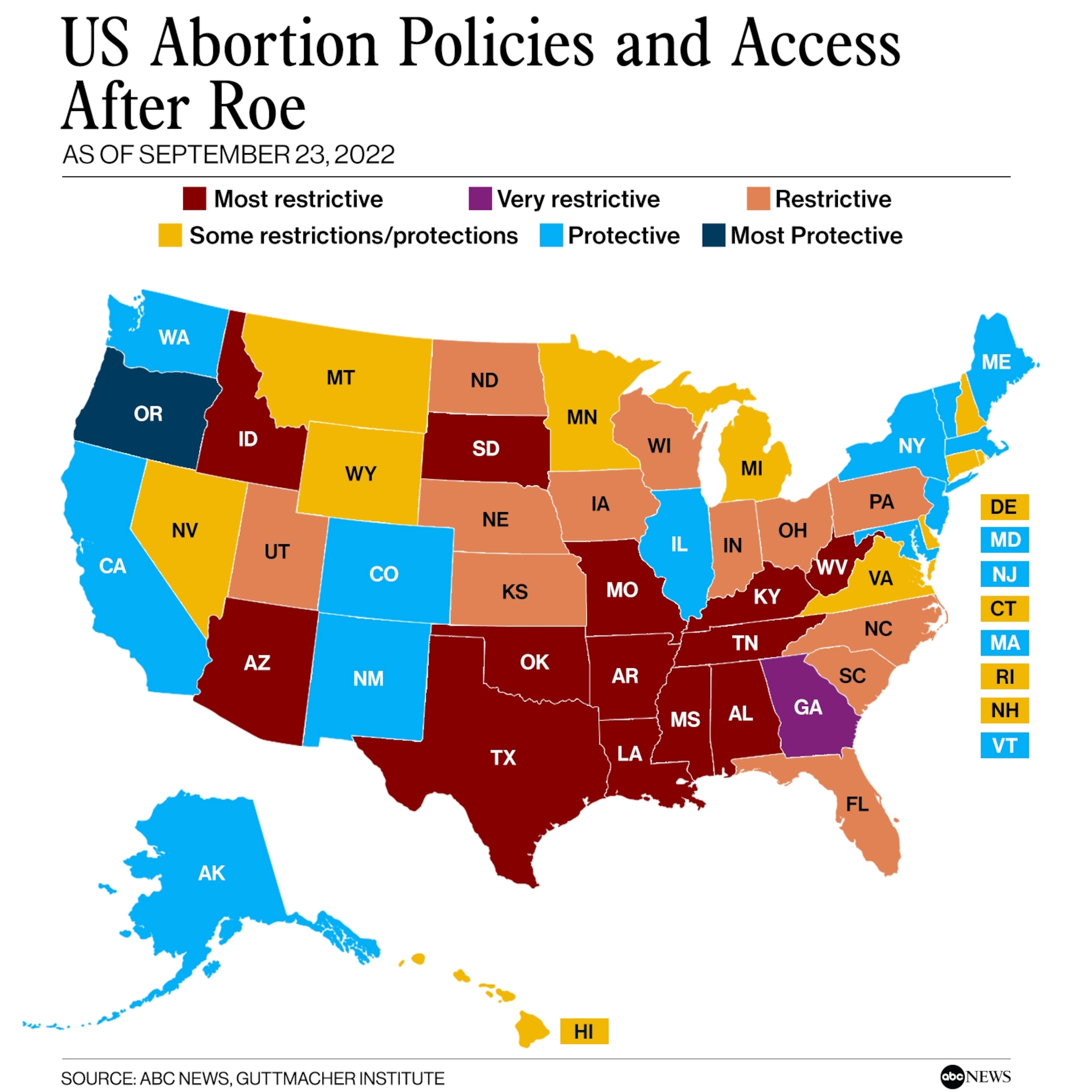Over-the-Counter Birth Control: Implications For Reproductive Healthcare After Roe V. Wade

Table of Contents
Increased Access and its Impact on Unintended Pregnancies
Easier access to over-the-counter birth control has the potential to significantly reduce unintended pregnancies. The Guttmacher Institute reports that nearly half of all pregnancies in the US are unintended, resulting in significant strain on healthcare systems and personal lives. Increased access to affordable and convenient birth control options could drastically alter this statistic. A study published in Contraception demonstrated a clear correlation between improved access to contraception and lower rates of unintended pregnancy.
The potential benefits of wider access to OTC birth control are substantial:
- Lower rates of abortion: Reduced unintended pregnancies directly translate to fewer abortions.
- Improved family planning: Individuals can better plan their families according to their own timelines and circumstances.
- Reduced strain on public healthcare systems: Fewer unintended pregnancies mean fewer costly healthcare interventions associated with prenatal care, childbirth, and postpartum complications.
- Empowerment of individuals to control their reproductive health: This allows individuals to make informed decisions about their bodies and futures.
Potential Concerns and Challenges of Over-the-Counter Birth Control
While the benefits of OTC birth control are compelling, potential challenges must be addressed. Improper usage due to lack of guidance could lead to reduced effectiveness. Furthermore, the potential for misuse or abuse must be considered. Ensuring equitable access for all socioeconomic groups and geographic locations is also crucial. Disparities in access could exacerbate existing health inequities.
Key concerns surrounding OTC birth control include:
- Need for comprehensive education campaigns: Public awareness campaigns are vital to ensure proper usage and understanding of potential side effects.
- Risk of incorrect dosage and administration: Clear and accessible instructions are crucial to prevent ineffective use.
- Accessibility issues for marginalized communities: Ensuring affordability and access in underserved areas requires targeted interventions.
- Potential for increased healthcare costs related to managing complications: While reducing unintended pregnancies, complications from misuse could increase healthcare costs in other areas.
The Role of Pharmacists and Healthcare Professionals
Pharmacists will play a crucial role in providing education and counseling on OTC birth control. This requires comprehensive training programs and updated protocols for patient consultations. Collaboration between pharmacists, physicians, and other healthcare providers will be essential to ensure optimal patient care.
To effectively integrate OTC birth control, several measures are needed:
- Enhanced pharmacist training programs: Pharmacists require specific training to provide accurate and empathetic counseling.
- Improved patient counseling protocols: Standardized protocols can ensure consistency in information provided to patients.
- Increased accessibility of telehealth consultations: Telehealth can bridge geographical barriers and provide convenient access to consultation.
- Integration of over-the-counter birth control into existing healthcare models: Seamless integration with existing systems ensures smoother access.
The Legal Landscape and Regulatory Considerations
The legal and regulatory landscape surrounding OTC medications is complex. FDA approval, labeling requirements, and state-specific regulations all play a role in determining the accessibility of OTC birth control. Navigating these legal complexities will be crucial to successful implementation. Potential legal challenges could arise from concerns about patient safety, liability, and access for minors.
Comparative Analysis of Other Countries’ Experiences
Examining the experiences of other countries that have implemented OTC birth control can provide valuable insights. Countries like the UK and France have had varying degrees of success, offering both positive examples and cautionary tales. Analyzing their approaches, including education initiatives and regulatory frameworks, can inform policy decisions in the US. Studying the impact on reproductive health outcomes in these countries can provide valuable data for predicting the potential effects of similar policies in the US.
The Future of Over-the-Counter Birth Control and Reproductive Healthcare
The availability of over-the-counter birth control presents a complex but potentially transformative opportunity for reproductive healthcare in the US. While concerns about misuse and inequitable access must be addressed, the potential benefits in reducing unintended pregnancies and empowering individuals to control their reproductive health are significant. A comprehensive approach combining increased access with robust education and support systems is vital.
To move forward effectively, we need further research into the impact of OTC birth control and proactive engagement with organizations advocating for improved reproductive healthcare access. Learn more about over-the-counter birth control options available and advocate for policies that promote access and improve the overall health and well-being of individuals. Your voice matters in shaping the future of reproductive healthcare.

Featured Posts
-
 Trump Envoys Moscow Trip Interfax Confirmation
Apr 26, 2025
Trump Envoys Moscow Trip Interfax Confirmation
Apr 26, 2025 -
 Nepotism In Hollywood The Oscars Highlight The Ongoing Debate Around Inherited Fame
Apr 26, 2025
Nepotism In Hollywood The Oscars Highlight The Ongoing Debate Around Inherited Fame
Apr 26, 2025 -
 Shedeur Sanders To The Browns Deion Sanders Influence
Apr 26, 2025
Shedeur Sanders To The Browns Deion Sanders Influence
Apr 26, 2025 -
 Jan 6th Ray Epps Defamation Case Against Fox News Explored
Apr 26, 2025
Jan 6th Ray Epps Defamation Case Against Fox News Explored
Apr 26, 2025 -
 Quem E Benson Boone O Cantor Que Conquistou O Mundo Antes Do Lollapalooza
Apr 26, 2025
Quem E Benson Boone O Cantor Que Conquistou O Mundo Antes Do Lollapalooza
Apr 26, 2025
